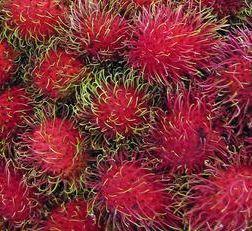
Thai fruit exporters are reporting a slump in demand from the US due to a shift in currency exchange rates, which render the fruit too expensive for North American consumers.
The Thai baht has strengthened against the US dollar since the days of 2006/07 when US$1 was worth Bt38-40, to around Bt35 per US$ (as of late March 2009), Thai shippers reveal. The change has resulted in a drop in their US sales over the two-to-three-year period, they claim: a trend that will be exacerbated this year by the country’s gloomy economic situation.
“We don't expect strong demand from the US, or indeed Europe, this year,” says Wipavee Vacharakorn, business development manager for Thai exotic fruit exporter Wachamon Food. “We enjoyed good sales two or three years ago when the exchange rate was around Bt38-40/ US$. But since last year when the exchange rate changed to Bt33-35/US$ our sales to the US fell. Moreover, with US economic situation as it is, I believe demand in the US will be very poor.”
High freight costs, the long transit time and tough US import regulations have traditionally presented stiff challenges to Thai fruit exporters accessing the US market, she adds. Though, this year, freight charges are likely to be lower than in the past due to an overall drop in global demand for imported goods.
It is the prospect of a fruit glut in the face of dwindling world demand that is causing most concern for Thai grower-shippers this season, according to Ms Vacharakorn.
“It seems we may have an over-supply issue,” she says. “Growers are expecting a bumper crop this season, and the Thai government has expressed some concern on how to handle the higher volumes. We’ve had cold weather in recent months which has resulted in a bumper crop of mangoes, lychees and longans.”



